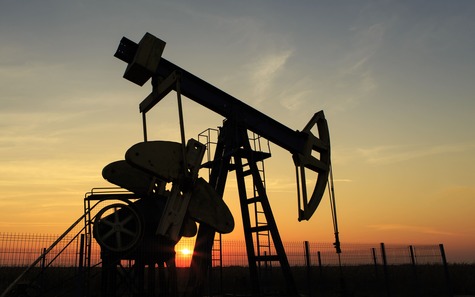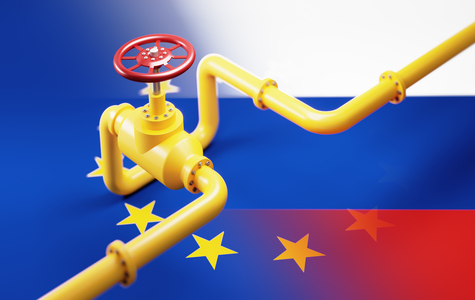- #Economy & Trade
- #Energy & Climate
- #Europe
- #Global Issues

► Since the beginning of the Pandemic in 2020, the global energy market has been showing signs of significant instability due to plummeting prices as consumption rapidly declined, followed by skyrocketing prices due to economic recovery and supply instability. And the situation only worsened after the start of the war in Ukraine.
► Because Korea has a low rate of energy self-sufficiency and is vulnerable to external shocks, it is crucial to secure a stable, long-term supply of energy resources at a reasonable price. Therefore, energy security is a key component of Korea’s economic security and an important issue that can rapidly and directly impact the national economy.
► Long-term supply contracts are an effective way to guarantee energy security when market conditions are uncertain because supply will be better ensured during these periods as agreed upon in the contract, regardless of market conditions. Therefore, in market conditions with increased uncertainties, it is necessary to secure sufficient long-term contracts to enhance the supply securities.
Since the beginning of the Pandemic in 2020, the global energy market has been showing signs of significant instability due to plummeting prices as consumption rapidly declined, followed by skyrocketing prices due to economic recovery and supply instability. And the situation only worsened after the start of the war in Ukraine. The unpredictability of the energy market, defined as an energy crisis, is hard to write off as an isolated event as the overall instability of the energy market continues.
The economic fallout triggered by the Ukraine crisis, which began on February 24, 2022, went beyond Russia and Ukraine to significantly impact the global energy market, especially in Europe. Russia is the largest energy supplier for Europe, the world’s largest energy markets together with the United States and China. The share of Russian gas in the European market was 40% in 2021, with oil and coal accounting for 27% and 46%, respectively. Russia is the world’s largest exporter of energy commodities, accounting for around 20% of the global energy trade. Russia has significant influence over the balance of supply and demand not only in Europe but also in the global market. As the energy supply from Russia declined or became unstable in the European market, the supply shock spread beyond Europe to the global energy market.
Following the outbreak of military conflicts in Ukraine, Europe is experiencing various difficulties due to unstable energy supply and demand, which caused soaring energy prices that led to a worsening inflation. The rapid increase in energy prices has also placed a significant burden on European industry as a whole, negatively impacting the price competitiveness of businesses. To solve this problem, Europe is implementing various policies, such as diversification of energy supply and reduction of energy consumption.
Compared to gas, oil and coal are easier to transport and store and have more suppliers, making it is easier to find new suppliers and consumers. The EU imposed a ban on Russian coal in August and plans to place a partial ban on Russian oil imports from 5th of December. Because of the aforementioned reasons, EU excluded gas from the embargo. Europe has been experiencing difficulties this year due to a reduction in Russian gas supply caused by various reasons and a surge in gas prices. But both the demand for and price of gas have recently been on the decline as a result of the warm weather in Europe and Asia and high prices and increased LNG supplies. It is difficult to predict how long this favorable situation will last. Europe has relatively diverse energy supply routes, and it is helping to stabilize the market situation. In addition, many European countries, including Norway, the Netherlands, and the U.K., are producing significant amounts of energy and, have diversified their energy import routes, including both land and maritime routes, while Korea has only maritime routes. Moreover, Europe has a well-developed energy market and electricity, gas, and oil infrastructure that is relatively well-connected between European and non-European countries. Korea, on the other hand, is much more vulnerable to these issues than Europe.
Korea is the eighth largest energy consumer in the world but is overly reliant on foreign energy resources, importing 95% of its energy supply from other countries every year. In 2021, Korea spent 137 billion dollars on energy and natural resource imports, accounting for 22.3% of the country’s total imports. Even though Korea is heavily reliant on energy imports, energy intensity is relatively high due to the proportion of heavy industry and other industries that require significant energy consumption. Because Korea has a low rate of energy self-sufficiency and is vulnerable to external shocks, it is crucial to secure a stable, long-term supply of energy resources at a reasonable price. Therefore, energy security is a key component of Korea’s economic security and an important issue that can rapidly and directly impact the national economy.
Formulating a long-term and feasible energy supply and demand strategy is critical not only for energy security but also for stable economic growth. For example, higher energy import prices since the outbreak of the war in Ukraine have led to Korea’s seven-month trade deficit from March to October for the first time in 25 years. The year-on-year increase in energy imports exceeded 35 billion dollars, which is the cumulative trade balance deficit through October. Therefore, the cause of this year’s trade deficit can be attributed to the increase in the value of energy imports.
Russian oil and gas account for around five percent of imports, and is also not experiencing disruption of energy supply from Russia. However, the significant rise in energy prices in the global market has increased inflation and had a negative impact on the trade balance. As a result, the share of energy imports out of total imports value increased dramatically from 19% in April 2021 to 29% in April 2022. The rise in the price of energy together with agricultural products, also experiencing supply insecurity, are negatively affecting consumers. Currently, due to an overall shortage of supply in the energy market, suppliers continue to have a competitive edge, and it is difficult to predict how long this situation will continue.
In the face of increased prices and supply instability, there is growing interest in investing in energy resources. Under such circumstances, it is necessary to start securing sufficient energy resources for future consumption. Failure to secure sufficient energy resources could lead to energy shortages in the future, even if there are no major issues with the current energy supply. Therefore, it is essential to expand direct investment in overseas energy resources and maintain good relations with not only energy importing countries but also exporting countries that are oligopolizing the market. To expand investment in these overseas resources, it is necessary to improve consulting for the private sector and increase the number of stable funding options for foreign investment by utilizing government and public company networks to support overseas investments.
The price hike triggered by supply shortages intensified competition between consumers, but at the same time, importing countries have put efforts to cooperate. Europe is pursuing joint gas purchase and French President Emmanuel Macron called for Europe to lower LNG prices in solidarity with Asian consumers. In addition, rising energy prices are creating conflict between energy exporting and importing nations. Cooperation between competing buyers is a challenge, but the possibility for cooperation may be realized in certain cases. Energy security cannot be achieved by the efforts of any single country. Therefore, it must be pursued at the national level through cooperation with other countries, as there are clear limitations to responding at the corporate level.
Because it is not possible to accurately forecast future demand, the fact is that there will be economic risks associated with increased energy supply as a result of investment in resources. This increase in excess supply can be partially addressed by expanding the capacity for oil and gas storage. Recently, energy importing countries have diversified the commercial use of energy storage by, for instance, importing oil and gas, storing it, and then reselling the excess to other countries. Energy repositories for oil and gas are a good way to contribute to increasing energy exports and stabilizing domestic and global energy balance. Moreover, these repositories are a way to enable Asian countries to share excess energy volumes through trade. The establishment and operation of oil and gas repositories are not cheap, but it is an incredibly cost-effective way to reduce energy supply and demand risk during periods of market and price instability.
Europe has gas repositories that can store up to 20% of annual gas demand, and this infrastructure plays a large role in overcoming gas supply and demand instability. However, Korea and other East Asian countries, such as Japan and China, are lacking in gas storage infrastructure and gas transportation infrastructures are not connected between countries, making it impossible to enable effective gas trades among each other like in Europe.
Compared to gas, it is possible to respond relatively quickly to changes in the supply of coal and oil. Because oil accounts for more import value than gas, the amount of total energy imports value is more sensitive to the price of oil. However, Korea refines and re-exports a significant amount of imported crude oil. Moreover, it is more complicated to achieve a stable supply and demand for gas than for oil. For gas, it takes a considerable amount of time to increase supply and purchase because it requires significant time and money to build infrastructure. It is also difficult to quickly respond to changes in the supply of gas due to the continuously increasing demand for gas both domestically and globally, and there are not many natural gas exporters which can supply gas in large quantities. Moreover, the gas market is an oligopoly, with Russia, the U.S., Qatar, Norway, and Australia accounting for a significant share of trade. Stabilizing gas supply and demand requires a considerable amount of time and effort and is relatively much more challenging. Therefore, relatively more emphasis needs to be placed on long-term and stable supply of gas. The proportion of spot contracts, one-off contracts for gas transactions, were on an upward trend. However, spot commodities have high price volatility and are very unstable in case of a supply deficit. Long-term supply contracts are an effective way to guarantee energy security when market conditions are uncertain because supply will be better ensured during these periods as agreed upon in the contract, regardless of market conditions. Therefore, in market conditions with increased uncertainties, it is necessary to secure sufficient long-term contracts to enhance the supply securities.
Jinsok Sung is an energy market researcher with a focus on the Asia Pacific and Eurasian energy markets. He is a Research Professor and lecturer at Hankuk University of Foreign Studies in Seoul, South Korea. He was also a Research Fellow at Hallym University of Graduate Studies, also in South Korea. Prior to his career at the universities, he was a Visiting Researcher at BOFIT, Institute for Emerging Economies at Bank of Finland. He has been conducting various research projects on global energy markets with research centers around the world and has over 10-year experience of research on global energy market issues. He holds a Ph.D. in international economics and a M.Sc. from Gubkin Russian State University of Oil and Gas. He received a B.A. in economics from Hanyang University in South Korea.
